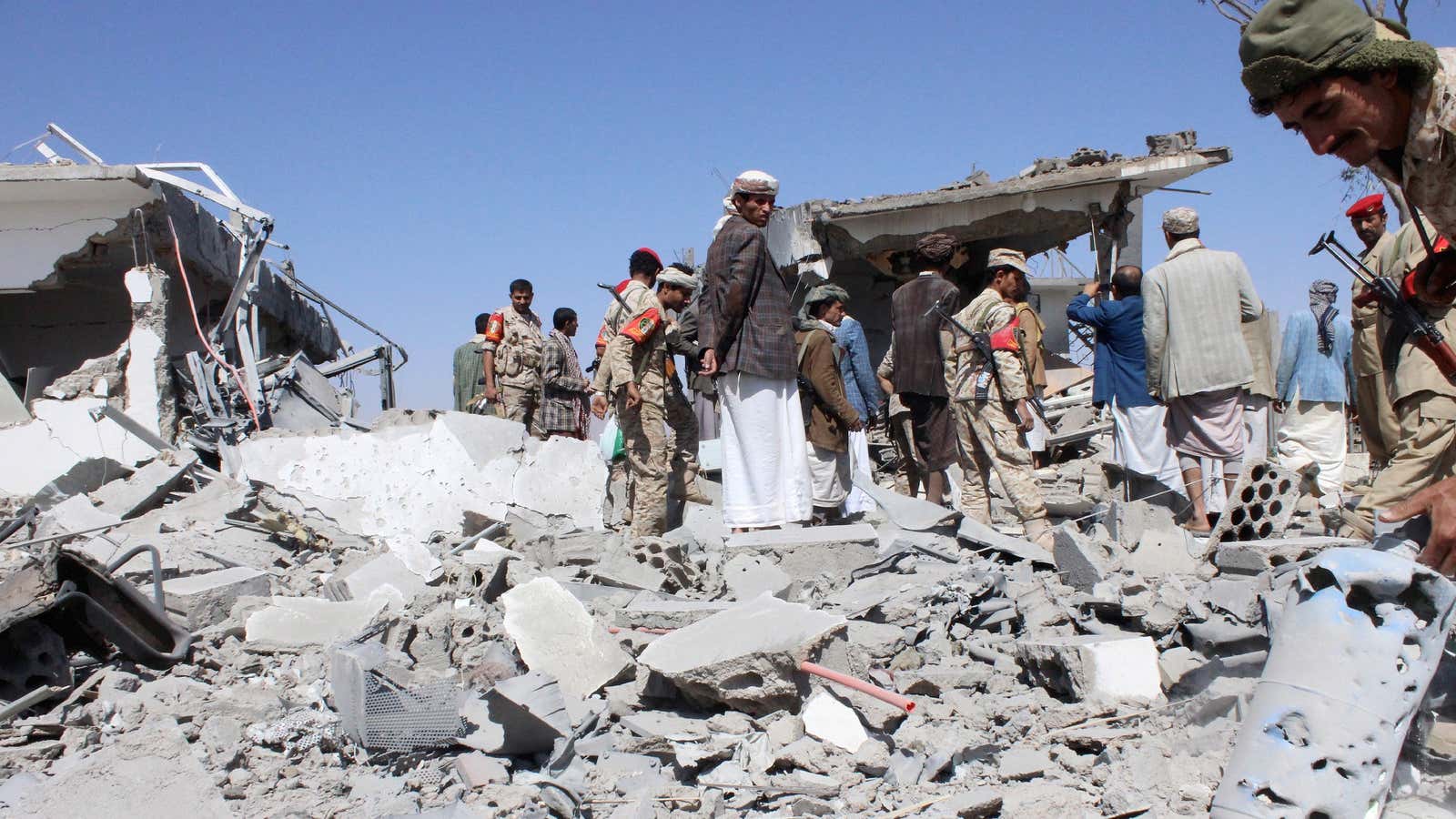The Washington Post reported this today:
An airstrike killed dozens of people Monday at a camp for displaced people in northern Yemen, in what appeared to be the single deadliest attack since a Saudi Arabia-led coalition sent warplanes to target Shiite insurgents advancing across the country.
As many as 40 people died and about 200 were wounded in the attack on the Mazraq camp in Hajjah province, said Joel Millman, a spokesman for the International Organization for Migration, which runs aid programs at the facility.
The Yemeni Shiite rebels, known as Houthis, accused the Saudi-led coalition of hitting the camp, located in an area under the control of the insurgents. Saudi officials did not confirm that. But, asked about the bombing, Saudi Brig. Gen. Ahmed Asiri, a coalition spokesman, asserted that the rebels were setting up positions in civilian areas and said that coalition warplanes had taken fire Monday from a residential area, forcing a “decisive response,” according to the official Saudi Press Agency.
So, taking fire from a civilian area in which shooters were hiding, the Saudis struck back. When Israel does that in Gaza, where it is the common practice of Hamas to hide in and shoot from civilian areas, and to store weapons in schools and hospitals (including those run by the United Nations), what happens? Israel is universally condemned. UN investigation commissions are appointed, and reports such as the egregious “Goldstone Report” (officially, the “The United Nations Fact Finding Mission on the Gaza Conflict”) are issued. The UN Security Council holds special sessions, and the UN Human Rights Council adds additional “hate Israel” meetings to its usual list.
I cannot recall an incident where Israel struck at a refugee camp and killed 40 people all at once, also injuring 200 others, but I am willing to bet on the world reaction to this Saudi attack: zero. No meetings, commissions, no reports.
What are the lessons to be drawn? That the Arab group and the Islamic nations have more votes in the UN than Israel, which of course has but one. That there is an indefensible double standard when it comes to evaluating Israel. And, that hiding behind civilians is a widespread crime. Nothing new here.
I suppose it’s too much to ask that if Israel and Hamas enter another round of fighting in Gaza, those countries who have joined together to suppress the Houthi rebels in Yemen might think twice before condemning Israel, and might even condemn Hamas for hiding behind civilians. But the almost certain silence in the United Nations about the attack on the refugee camp in Yemen is worth recalling the next time Israel is attacked for doing far less to protect itself. I don’t know the details about the Saudi attack, and perhaps it was carried out with care and precision. The point is, no one is going to bother to find out.




